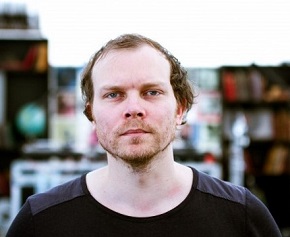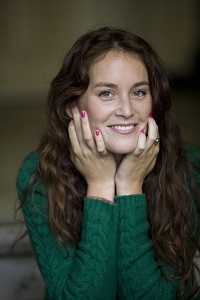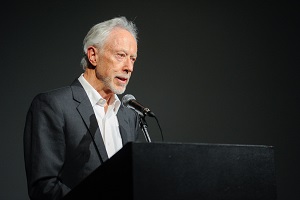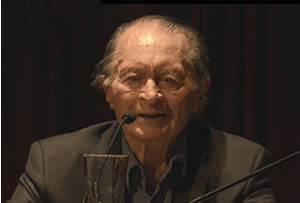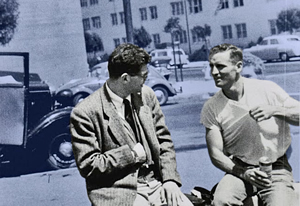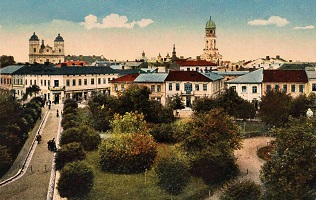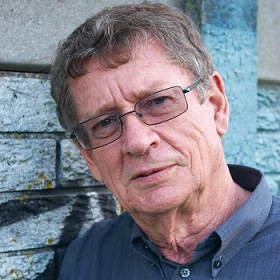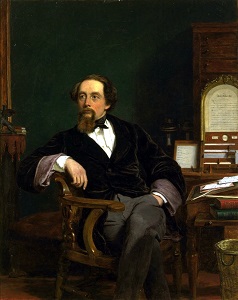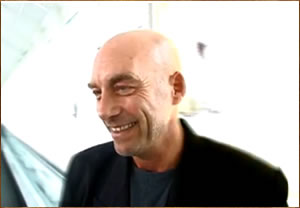De Nederlandse dichter en schrijver Jacob (Jac.) van Hattum werd geboren in Wommels op 10 februari 1900. Zijn eigenlijke naam was Van Hattem, maar door een fout bij de burgerlijke stand werd het ‘Van Hattum’. Aanvankelijk werkzaam als onderwijzer begon hij eind jaren twintig gedichten te schrijven. Deze verschenen aanvankelijk in christelijke tijdschriften en socialistische bloemlezingen. Van Hattum debuteerde in 1932 met het goedkoop uitgegeven bundeltje “Baanbrekertjes”. In de tweede helft van de jaren dertig timmerde hij aan de weg met verschillende dichtbundels, die een geheel eigen, ietwat ironisch geluid lieten horen: “Gedichten” (1936), “De pothoofdplant” (1936) en “Frisia non cantat” (1938). Samen met Ed. Hoornik en Gerard den Brabander wordt hij geacht tot de ‘Amsterdamse School’ te behoren, die een reactie was op het tijdschrift Forum en ook het anekdotische toeliet in de poëzie. Het drietal publiceerde in 1938 een dichtbundel die met een verwijzing naar de naam van E. du Perron was getiteld “Drie op één perron”. Een tweede deel verscheen in 1941. Van Hattum was echter een echte individualist, die niet erg van samenwerking hield. Hij zette zich niet in voor literaire tijdschriften, zoals Hoornik. Ook vond hij de weg naar het café niet, zoals Den Brabander. Hij was een echte veelschrijver, die een tijd lang elk jaar een dichtbundel publiceerde, en toen de oorlogstijd dat onmogelijk maakte voor wie geen lid was van de Kultuurkamer, bracht hij illegale drukwerkjes in eigen beheer uit, die qua inhoud en qua vorm nonconformistisch waren. Na de oorlog ging Van Hattum direct door met zijn vele kleine boekjes, zowel de soms sarcastische korte verhalen als poëzie met lichte ondertoon: “Een zomer” (1946), “Mannen en katten” (1947), “Het hart aan de spijker” en “Eule beule bolletje” (beide 1954). In dat jaar verscheen ook zijn fraai uitgevoerde Verzamelde gedichten bij uitgeverij Van Oorschot. Een deel van zijn uitgaven bekostigde hij zelf, zoals bij een uitgeverij als De Beuk de gewoonte was, maar ook stuurde hij regelmatig nieuwjaarswensen rond met een gedicht erop. Ook in de jaren vijftig en zestig werd zijn werk goed verkocht en ‘modern’ bevonden: “Sprookjes en vertellingen” (1955), “Plant u niet voort”, een bewerking van de sonnetten van Shakespeare (1959), “De liefste gast” met een uitgesproken homoseksuele inslag (1961), “Het kauwgumkind” (1965), “Loze aren” (1970) . In de jaren zestig begon hij rondweg excentriek te worden. Hij ging gewoonlijk gekleed in een kazuifel en bracht de rooms-katholieke eredienst tot uitdrukking in al wat hij deed. Begin jaren zeventig werd hij in een verpleeghuis opgenomen. Van Oorschot bracht in 1993-1995 zijn Verzameld werk uit in twee delen. In werkelijkheid was het een keus daaruit, aangezien Van Hattums productie zeer groot was. Veel van zijn verhalen en gedichten zijn nog niet gepubliceerd.
Laatste brief
Er moet wel iets zijn gebeurd
al weet ik nog altijd niet wat;
ze hadden een enig kind
en ik heb het lief gehad.
Maar het ging, als het meermaal gaat,
en waarover je nauw’lijks kunt praten;
kortom, ik heb haar gemeen,
naar de roddelaars zeiden, verlaten.
Soms heb ik nog bij gerucht
en te hooi en te gras iets vernomen
tot vanmorgen het pijnlijk bericht
met de donkere rand is gekomen.
En steeds denk ik weer aan de zin,
die ze, dacht ik, profaan had geschreven:
‘Jij gaat nu de vrijheid in
en ik kan bij die vrijheid niet leven.’
Herinnering
Ik was een kind; ik woonde in ’t bos;
daar waren nergens hoger dennen,
mijn vader wees me ree en vos;
ik leerde alle vogels kennen.
Ik droeg de wolfsklauw in m’n haar
en zocht de adelaar der varen
en ’s winters hing de sneeuwval zwaar
in dennen, die als priesters waren,
met witte kruin en purperen pij
van zonlicht, dat de stammen kleurde.
140 pond
Ik ben Van Hattum en ik weet,
dat 140 pond zo heet,
maar dat de naam direct vervalt,
als het leven wijkt uit de Gestalt.
Dan ligt, onder de naam van lijk,
die honderdveertig pond te kijk;
Gij zijt bij het défilé misschien:
alleen ik zelf zal het niet zien.
Da’s vreemd: ik zie wat Gij niet ziet;
wat Gij dán ziet, zie ik weer niet.
Enfin….; de honderdveertig pond
is nog springlevend en gezond.
-En ik geniet graag ’s levens gunst
én om mij zelf én om de kunst –
hoe meer ik drink, hoe meer ik eet,
hoe meer gewicht Van Hattum heet.
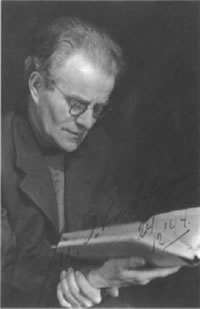
Jac. van Hattum (10 februari 1900 – 19 augustus 1981)
